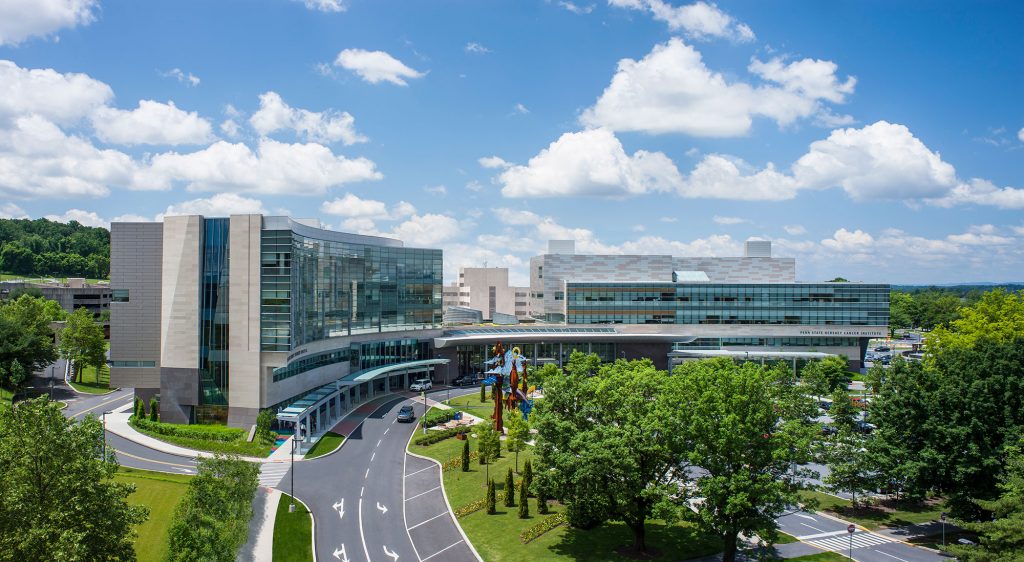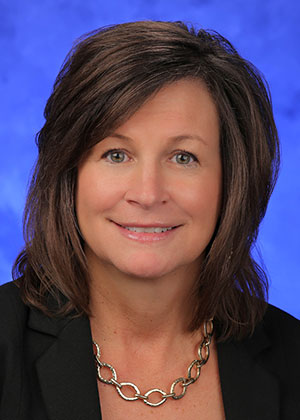Jump to topic
Search
Program Details
The subspecialty of clinical neurophysiology involves the measurement and assessment of the central nervous system, peripheral nervous system, and skeletal muscle for the purpose of diagnosing and treating neurological disorders.
The Department of Neurology is committed to excellence in patient care and clinical teaching services. To that end, the training in the Clinical Neurophysiology Fellowship is a major goal of departmental faculty. The department takes pride in its role as part of a university teaching hospital and gives teaching a high priority. The faculty believes that medicine is both a science and an art and recognizes that a rational scientific approach to patient treatment and care must be coupled with respect, empathy and a concern for both patient and family.
Training is split between EMG/Neuromuscular and EEG/epilepsy. Rotations are available in EEG, Epilepsy monitoring unit, ambulatory EEG, EMG/NCS, evoked potentials, autonomic testing, Botulinum toxin use, nerve and muscle ultrasound and skin biopsy for small fiber neuropathy. The program has a tailored lecture schedule, interactive discussion and active learning, including comprehensive one-to-one quarterly half-day learning camps.
The fellowship curriculum is built around active patient-care experiences. These experiences are the intellectual backbone of neurology. Since this process can best be taught by demonstration, the program encourages one-on-one teaching opportunities between faculty and fellows. It is in such settings that fellows become colleagues. Attending physicians are always available to discuss patient-care issues and serve as guides in the process of fellowship training. The high ratio of full-time attending staff members to fellow(s) allows ample opportunity for one-on-one teaching. The program’s size provides the advantage of tailoring the fellowship to meet specific requirements and situations.
Learn More about the Fellowship
General Application Information
Before starting a fellowship, the candidate will have successfully completed an ACGME-approved residency program in neurology. The candidate must be board-eligible or board-certified in neurology.
The program participates in the fellowship application timeline in conjunction with the AANEM Clinical Neurophysiology Fellowship Portal.
Visa Requirements
Applicants must be one of the following:
- A U.S. citizen
- A permanent resident (green card holder)
- The holder of a J-1 visa sponsored through ECFMG
- The institution does not sponsor any other visas
Application Requirements
Interested applicants should submit a cover letter, updated CV and three letters of recommendation (one must be from the residency program director) via email to rchoyce@pennstatehealth.psu.edu between September and Jan. 5. Interviews will be offered after applications are received.
Letters of recommendation may be emailed directly by the references.
Virtual Tour
Penn State Health
Penn State Health is a multi-hospital health system serving patients and communities across 29 counties of Pennsylvania. Its mission is to improve health through patient care, research, education and community outreach.
In December 2017, the system partnered with Highmark Health to facilitate creation of a value-based, community care network in the region. The shared goal of Highmark and Penn State Health is to ensure patients in the community are within:
- 10 minutes of a Penn State Health primary care provider
- 20 minutes of Penn State Health specialty care
- 30 minutes of a Penn State Health acute care facility
Learn more about Penn State Health

Penn State Health Children’s Hospital (left), Penn State Health Milton S. Hershey Medical Center (center) and Penn State Cancer Institute (right)
Penn State Health Milton S. Hershey Medical Center
500 University Dr., Hershey, Pa., 17033 (Derry Township, Dauphin County)
- The health system’s 647-bed flagship teaching and research hospital
- The only medical facility in Pennsylvania accredited as both an adult and a pediatric Level I (highest-level) trauma center
- Dedicated surgical, neuroscience, cardiovascular, trauma and medical intensive care units
- Accredited Life Lion critical-care transport providing more than 1,100 helicopter and approximately 750 ground ambulance transports per year
- More than 1,300 faculty members and more than 650 residents and fellows
- Approximately 29,000 admissions, 73,000 emergency department visits, 1.1 million outpatient visits and 33,000 surgical procedures annually
- Designated as a Magnet hospital since 2007
Learn more about Milton S. Hershey Medical Center
Penn State Health Children’s Hospital
600 University Dr., Hershey, Pa. 17033 (Derry Township, Dauphin County)
- An eight-story, 263,000-square-foot-facility built in 2013 and expanded in 2020
- 160 licensed pediatric beds, 26-bed pediatric intensive care unit and a 56-bed neonatal intensive care unit
- Level IV (highest-level) neonatal intensive care unit
- Level I quaternary (highest-level) pediatric intensive care unit
- Level I (highest-level) pediatric trauma center designation
- Intermediate care unit
- Dedicated pediatric operating rooms
- More than 150,000 pediatric outpatient visits, 20,000 pediatric emergency room visits, and approximately 5,000 pediatric patient discharges annually
Welcome to Hershey
More About Hershey
Interested in learning more about living and working in Hershey, Pa.? See details here:
Wellness, including emotional, spiritual, social and physical health, is a crucial component to training and to becoming a professional, compassionate and resilient physician. Self-care is a skill which must be continually practiced and reinforced. Penn State College of Medicine and Penn State Health are committed to addressing wellness among residents and fellows, with multiple resources readily available.
Institutional resources
- Visit BeWell – a health program designed to support Penn State Health employees
- See Penn State College of Medicine wellness resources here
- Employee Health Care Concierge and Case Management Service
- Partners in Medicine
Moving to a new city with your family does not have to be stressful. Residency programs have assisted many significant others with finding employment. There is also a GME-Wide Partners in Medicine (PIM) group that offers networking opportunities as well as various social and community oriented activities. - The Doctors Kienle Center for Humanistic Medicine
- Active and easily accessed Office of Professional Mental Health
Graduate medical education resources
Institutional Resources
Penn State Health and Penn State College of Medicine celebrate, embrace and support the diversity of all patients, faculty, staff, students and trainees.
Office for Diversity, Equity and Inclusion
In keeping with this, Penn State Health has an active Office for Diversity, Equity and Inclusion with various programs, networks and resource groups, including:
- Talks and lectures on diversity, equity and inclusion through the Inclusion Academy
- Regular events on topics such as eradicating racism and creating a culture of inclusiveness
- Many Business Employee Resource Groups (BERGs), including:
- Disability Business Employee Resource Group
- Interfaith Business Employee Resource Group
- LGBTQ+ Business Employee Resource Group
- Military and Veterans Business Employee Resource Group
- Multicultural Business Employee Resource Group
- NextGen Business Employee Resource Group
- Black Physician Professional Staff Association – Resource Group
- Hispanic Professional Association
- Asian Physician and Professional Staff Association
- International Workforce Inclusion
Learn more about the Penn State Health Office for Diversity, Equity and Inclusion
Learn more about the College of Medicine’s Office for Diversity, Equity and Belonging
Office for Culturally Responsive Health Care Education
The vision at Penn State College of Medicine and Penn State Health is to equip learners with the knowledge, skills and attitudes they will need to provide culturally excellent health care and research for an increasingly diverse U.S. population. The Office for Culturally Responsive Health Care Education was formed to help meet that goal.
Learn more about the Office for Culturally Responsive Health Care Education
Office for a Respectful Learning Environment
In addition, the institution does not tolerate discrimination, biases, microaggression, harassment or learner mistreatment of any kind, and any concerns are immediately addressed by the Office for a Respectful Learning Environment.
Learn more about the Office for a Respectful Learning Environment
Network of Under-represented Residents and Fellows
The Network of Under-represented Residents and Fellows (NURF) is a group of diverse residents and fellows representing all specialties. NURF’s goal is to promote cultural diversity in the residency programs through community involvement, mentorship with diverse faculty, professional networking and support for the recruitment of diverse medical students into the residency programs.
NURF is sponsored by the Penn State College of Medicine Graduate Medical Education Office and the Penn State Health Office for Diversity, Equity and Inclusion.
Fellow Honors and Recognitions
The annual Resident/Fellow Research Day is held each year (with exception of during the COVID-19 pandemic) on and around the Penn State Health Milton S. Hershey Medical Center campus.
The intent of the event is to provide an opportunity for residents and fellows to showcase their research accomplishments to their peers in other clinical departments, as well as their colleagues in the basic sciences.
Learn more about Resident/Fellow Research Day here.
Previous presentations from the Clinical Neurophysiology Fellowship are listed here.
Latest News from Neurology





